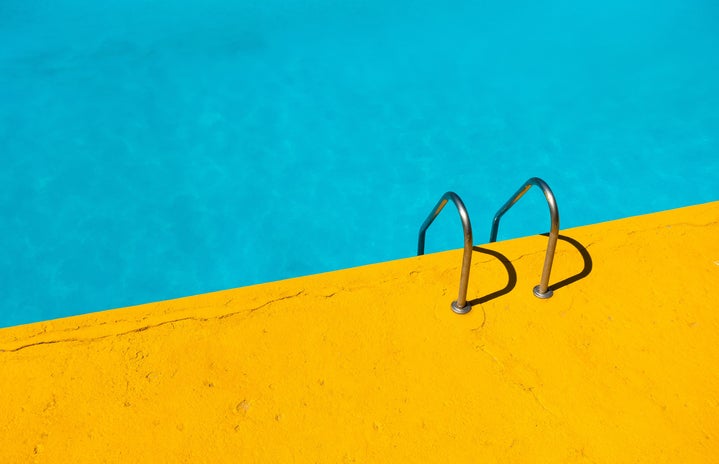By Melissa Mier
Kanye West has never shied away from making a statement. The list of things he’s said and done goes on and on—just ask Taylor Swift about the 2009 VMAs.
Don’t get me wrong, though—Kanye has proven himself to be more than just a tabloid topic. He’s transformed and strengthened the connection between music and art; he’s undoubtedly bold as a creator and has demanded respect as an artist.
The reactions to his video for “Famous” have been mixed, however. The video features celebrity figures, sans clothes, lying in a large bed with a naked Kanye and Kim. If he was trying to shock his viewers, that he did—but can we really call this art?
Consider the fact that Kanye placed a naked Rihanna in bed next to her assaulter, Chris Brown. Taylor Swift lies side by side with Kanye, despite the controversy surrounding the demeaning lyrics in the song. Then there’s Bill Cosby, who’s facing numerous allegations of sexual assault. But regardless of who’s featured in the video, ultimately, these celebrities are being depicted in a vulnerable state without consent. Let’s ask this again: Can we really call this art?
The answer is no—there is no way that this can be considered art. This “art” that Kanye has decided to include in his latest music video is nothing more than a PR stunt and worse, is complete exploitation. Sure, you could argue that it’s a deep, visual representation of what it means to be vulnerable and powerless in the industry, but the way to do it isn’t to exploit the very people in the industry. Using—using—these men and women for clicks, views and monetary gain simply isn’t a form of art. We need to stand for the rights of the people depicted in that video. They are being marketed as a product next to their abusers. They are being sold as lyrics calling them derogatory terms. They are being placed next to criminals without consent. Not standing up for them perpetuates rape culture.
Art stands a purpose, a point, an expression, a feeling. The exploitation of a person brings pain, emotional trauma, embarrassment, and constant shame. Art and exploitation are not synonymous and we cannot allow Kanye West to escape our critique simply because he is Kanye West. As women, we need to stand together to build a community that is always seeking to educate, empower, and bring positivity to one another. In this case, it’s our place to say that this, to us, isn’t entertainment. We do not want to see sexual abuse, physical abuse, and sexualized, naked bodies made vulnerable for one individual’s personal gain. It doesn’t do anybody any good to have people depicted naked and sold as a product without consent under the guise of “art.”
I vividly remember the humiliation I experienced one cloudy Sunday morning when I woke up in a stranger’s bed. The initial moment of confusion rapidly faded into panic—and then into anger. I was a deer in the headlights. My mind raced. How do I get out of bed without waking him? Where are all of my things? How did this happen?
After I left, I called my friends who I’d been out with the night before. It turns out, multiple people had texted my abuser asking him if he was with a “girl who didn’t know where she was.” My friends were worried sick and had rounded up a group of his acquaintances to try to contact him. In that moment, the pieces clicked. His phone was on his nightstand—he knew he was committing a crime with someone who was obviously too intoxicated to consent. If everyone around me at that party could recognize that, obviously he did as well—but unlike the others, he chose to ignore it.
I know I’m not the only one. It comes down to the fact that as a society, we continue to let people get off the hook. We often blame the victim—what were you wearing? Were you drunk?—but it’s time to start making sure abusers face the consequences. Flirting doesn’t mean yes. Being in a relationship doesn’t mean yes. And your being Kanye West doesn’t mean yes, either.

